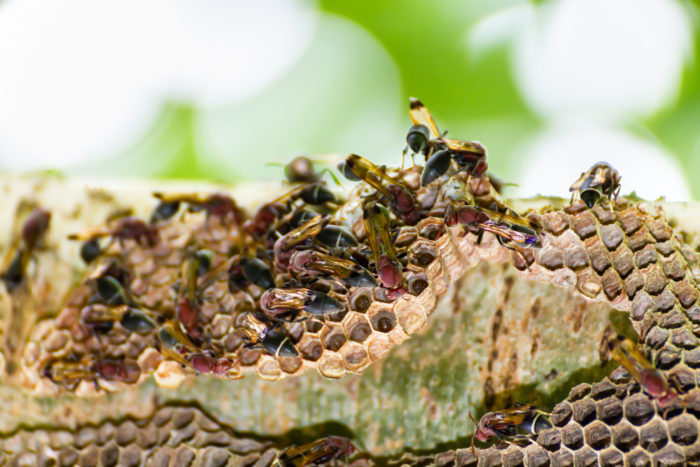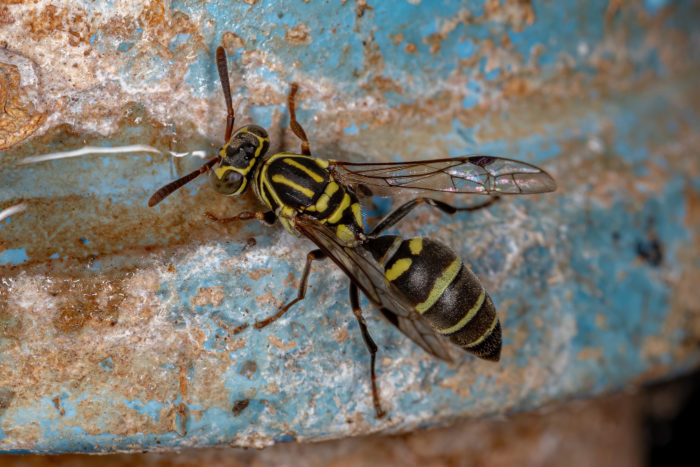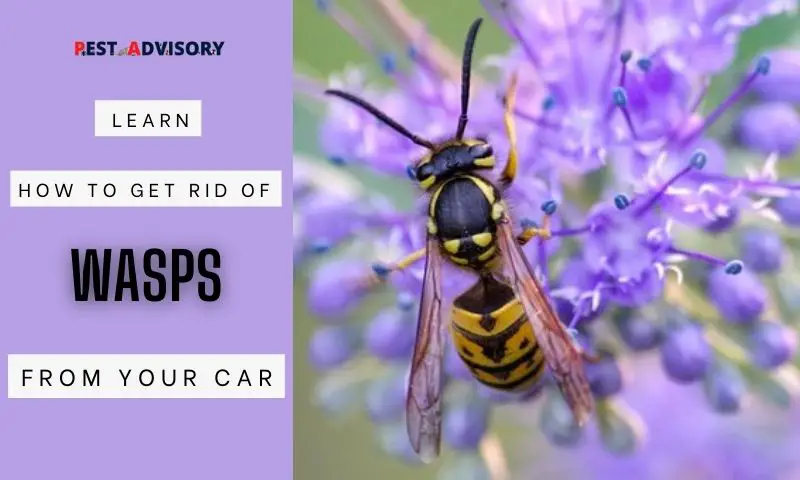While enjoying a morning ride, you suddenly found a wasp inside your car. How would you feel?
It is indeed terrifying, right?
Assuming you are petrified of seeing wasps, now you’ll be in an extreme rush to get rid of them, particularly if you use your vehicle for regular travel.
Important Note: If you're tired of pests and want a reliable solution, then you should definitely consider seeking help from a professional pest control company. DIY solutions can be effective, but if you're dealing with a significant pest infestation, you don't want to rely solely on DIY methods. Pest control companies typically don't charge huge fees. You can fill out this form to receive free quotes from the top local pest control companies, and compare the quotes and see for yourself. Then, finally, your pest problems will be eliminated for good.
And even though you attempted to remove wasps, however, still are confronting the issue of mildew smell made by wasps. It tends to be unpleasant to spend time sitting in your vehicle.
In this article, we will look at the most common reasons for wasps being attracted to a car and a few simple steps and tips to get rid of wasps and reclaim your vehicle back.
Why Are Wasps Attracted To My Car?
Wasps can be attracted to a vehicle for a bunch of reasons. The most obvious reason that can be considered is to be a food source and a decent warm place to build their nest.
Here are the main reasons why wasps might be attracted to a car:
Ideal Location to Build Nest
Hidden spaces in the car along with warmth establish a decent environment for wasps to build their nest inside the car.
Dead Insects
Wasps can feed on the bugs that are dead on your vehicle. Dirty vehicles can give a buffet meal to the wasps. Frequent vehicle washes can help with preventing wasps from a car.
Vehicle Color
Wasps are most attracted to splendid bright color shades. Dull tones, especially black or red, can make wasps think of it as their enemy and can make them attack it.
Food Left in Car
Sweets and sweet food items will attract wasps. Attempt to keep your vehicle free from leftover snacks. Just pack what you want daily and carry it with you.
Wasps will follow each other so when one wasp evades your vehicle others won’t be a long way behind.
If you have a couple of wasps that enter your vehicle, rapidly opening a window or eliminating them can keep other wasps away from entering.

How to Get Rid of Wasp Nest in Car?
Step 1
Put on a long-sleeved shirt, long jeans, a cap, protective boots, and gloves. You need as much protection as possible between you and the wasps as there is a possibility that they choose to attack back.
Step 2
Cautiously search for the wasp nest inside the car in hidden spaces. Examine the storage compartment and behind the rear and front lights. These are normal hiding spots for wasps.
Step 3
When the nest is found, step back 15 to 20 feet and drench the wasps’ nest with insecticide. The wasps might choose to come out and attempt to attack back at you. Assuming this is the case, spray the wasps with the wasp insecticide.
Step 4
Once all wasps have left the nest, approach the nest slowly. Once again drench the home completely with insecticide from 10 feet away, and again from 5 feet away.
Step 5
When you feel there is no movement from inside the wasps’ nest, eliminate the nest with your gloved hands and toss it in your trash bin.
Wait until two days. If you have eliminated all wasps from the nest, the wasps won’t return.

How To Keep Wasps Away From Your Car?
After the removal of wasps, it is vital to find ways to prevent wasps from returning.
You should assess the areas where you park your vehicle to check whether there are any nearby wasp nests. In such a case, eliminating these will bring down the probability of one more nest being made inside your car.
Likewise disposing of wasp food sources such as garbage/leftover food, sugar, and water inside your car can help you with keeping them away from settling once again inside a car.
Parking your vehicle in a safe garage space is a decent method for eliminating the chances of exposure to wasps. For some individuals, this solution might not be feasible but other various strategies will be the best.
Look for rarely driven vehicles around your surroundings as they can act as an ideal spot for wasps to build their nests.
Additionally, frequently driving your vehicle will make it hard for wasps to make their nests inside.
Frequently Asked Questions
Can wasps build nests inside cars?
Yes, it is possible for wasps to build nests inside cars, especially if the car has been parked outside for an extended period of time.
Wasps are attracted to enclosed spaces, and a car can provide a cozy shelter for them.
How Long Can a Wasp Live In a Hot Car?
A wasp, honey bee, or other pests can survive in a hot car for about two days with air. However, it totally depends on the environment they are trapped in.
Hence, I believe it can’t live inside a car and will ultimately die within a day or two.
What kind of damage can wasps cause to a car?
Wasps build their nests using a variety of materials, such as wood fibers, paper, and mud. These materials can clog up vents and other small openings in the car, which can hamper the air conditioning or heating system and cause damage to the car’s electronics.
When wasp nests are left for an extended period of time, they can cause corrosion on the car’s surface. The nest material can trap moisture, which can lead to rust and other types of damage.
Final Words
Congratulations! You now have practical and effective solutions for safely removing wasps from your car.
Remember to prioritize your safety and take preventative measures to avoid future infestations.
With this knowledge, you can confidently take control and ensure a safe and enjoyable driving experience.

